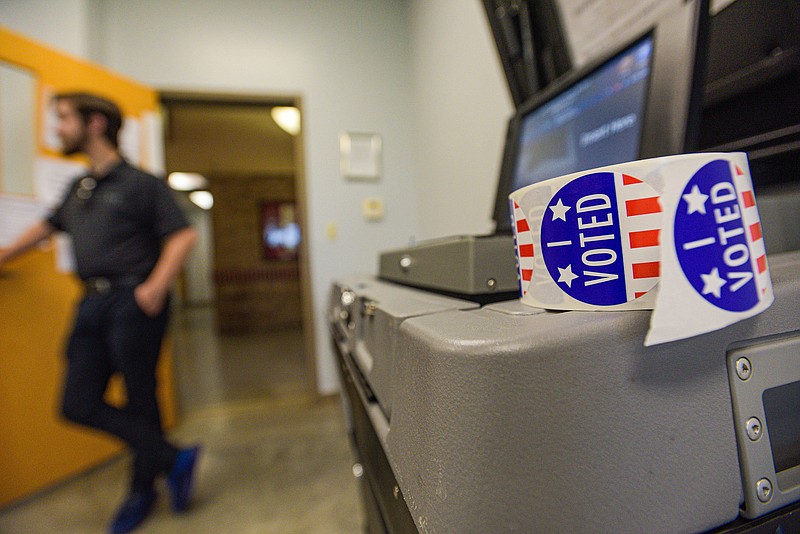The 8th Circuit Court of Appeals put a ruling overturning a 2009 state law on hold pending appeal, meaning the law forbidding one person from acting as translator for more than six voters in casting their ballots remains in place for the Nov. 8 general election.
No hearing date on the appeal is set, appeals court records show. The court granted the stay on Sept. 28, court records show. The executive director of the group that brought the suit said Thursday that the appeal probably will not be resolved until after the first of the year.
Arkansas Act 658 of 2009 says in part no one "other than poll workers shall assist more than six voters in marking and casting a ballot at an election." The shortage of poll workers fluent in Spanish and other languages limited the help non-English proficient voters could get, claimed the Nov. 2, 2020, lawsuit filed by Arkansas United, a Springdale-based immigrant rights group. The group filed suit in U.S. District Court in Fayetteville.
U.S. District Judge Timothy Brooks of Fayetteville ruled on Aug. 19 of this year that the Arkansas law violates the federal Voting Rights Act. The federal act says someone needing help reading or writing to vote may choose the person to assist them, including a need for a translator. If a voter's chosen translator had already helped six people, the Arkansas law would deny that seventh voter the translator of choice, Brooks ruled.
Brooks ruled on the case Aug. 19, which was 10 months after the final briefs making arguments in the case were filed. By the time he ruled, it was too close to the election to make serious changes to election ground rules, according to arguments made for the 8th Circuit's stay. The appeal also challenges the plaintiff's standing to bring the suit, among other arguments.
The secretary of state's office appealed Woods' ruling, and their plea drew the support of The Honest Elections Project, a Virginia-based conservative group. The group filed an amicus, or "friend of the court," brief supporting the secretary of state's request for a stay of Brooks' ruling pending appeal. The elections project "has a significant interest in this case, as it implicates the Legislature's preeminent role in setting the rules for elections and election-related litigation," according to its brief in the Arkansas case.
The same group filed a amicus brief earlier this year in a U.S. Supreme Court case that argues for the independent state legislature theory. That theory contends the U.S. Constitution gives state legislatures the power to determine how federal elections are run without limits from state constitutions or state courts.
Federal courts should follow the precedent of refraining from intervening in election law in the run-up to an election, the election project's brief argues.
Arkansas United is receiving representation in court from the Mexican American Legal Defense and Educational Fund, a nationwide civil rights group.
"We are beyond disappointed," said Mireya Reith, executive director of Arkansas United. "Election officials do not have time now to increase their pool of translators. There is not going to be enough support for poll workers. We've issued a call for volunteers but we can't get the support that's necessary." Early voting in this year's election begins Oct. 24.
Arkansas United got more requests for assistance in the 2020 election than its staff and the volunteers it recruited could provide, court records say. Besides calls from voters, poll workers in Springdale asked Arkansas United for help in giving voters translation assistance, the plaintiffs argued.
Besides the secretary of state's office, other defendants in the lawsuit are the state Board of Election commissioners and election commissioners in Benton, Washington and Sebastian counties, where staff and volunteers for Arkansas United were active and held to the state law.
The case before Brooks didn't go to trial since both sides agreed to make their cases in briefs filed with the court. There were no disputes as to the facts in the case, leaving Brooks to make a summary judgment, according to court records.
The plaintiffs argued the six-person limit, for example, sometimes prohibited a single person who is proficient in English from helping all the members of his family vote.
The state argued in court the purpose of the six-voter limit was to prevent translators and others rendering assistance from unduly influencing voters' decisions in the voting booth. Brooks rejected the argument. "Take, for example, a family where a teenage child is fluent in English, but her parents, older siblings, and grandparents are not," Brooks' ruling states.
